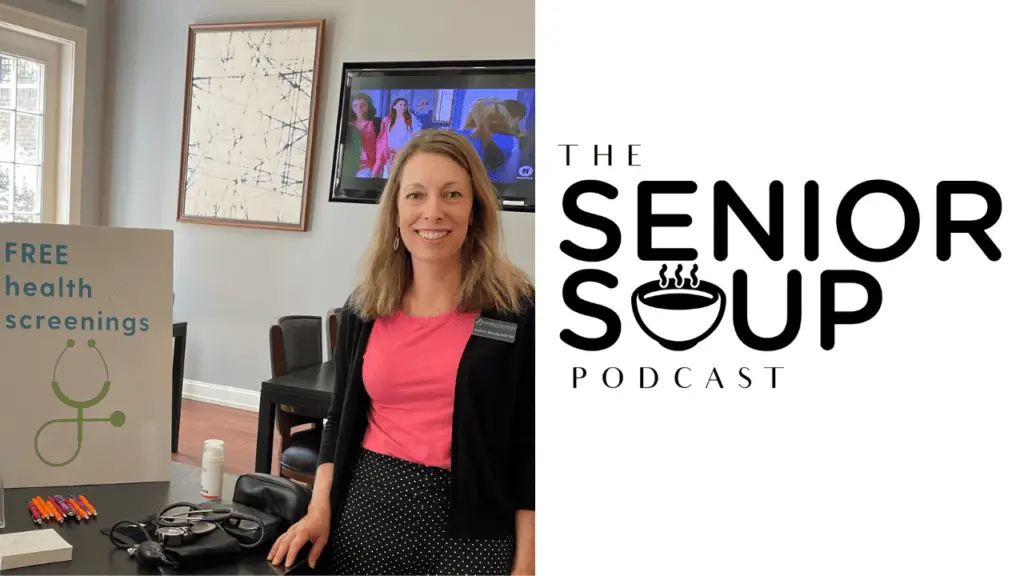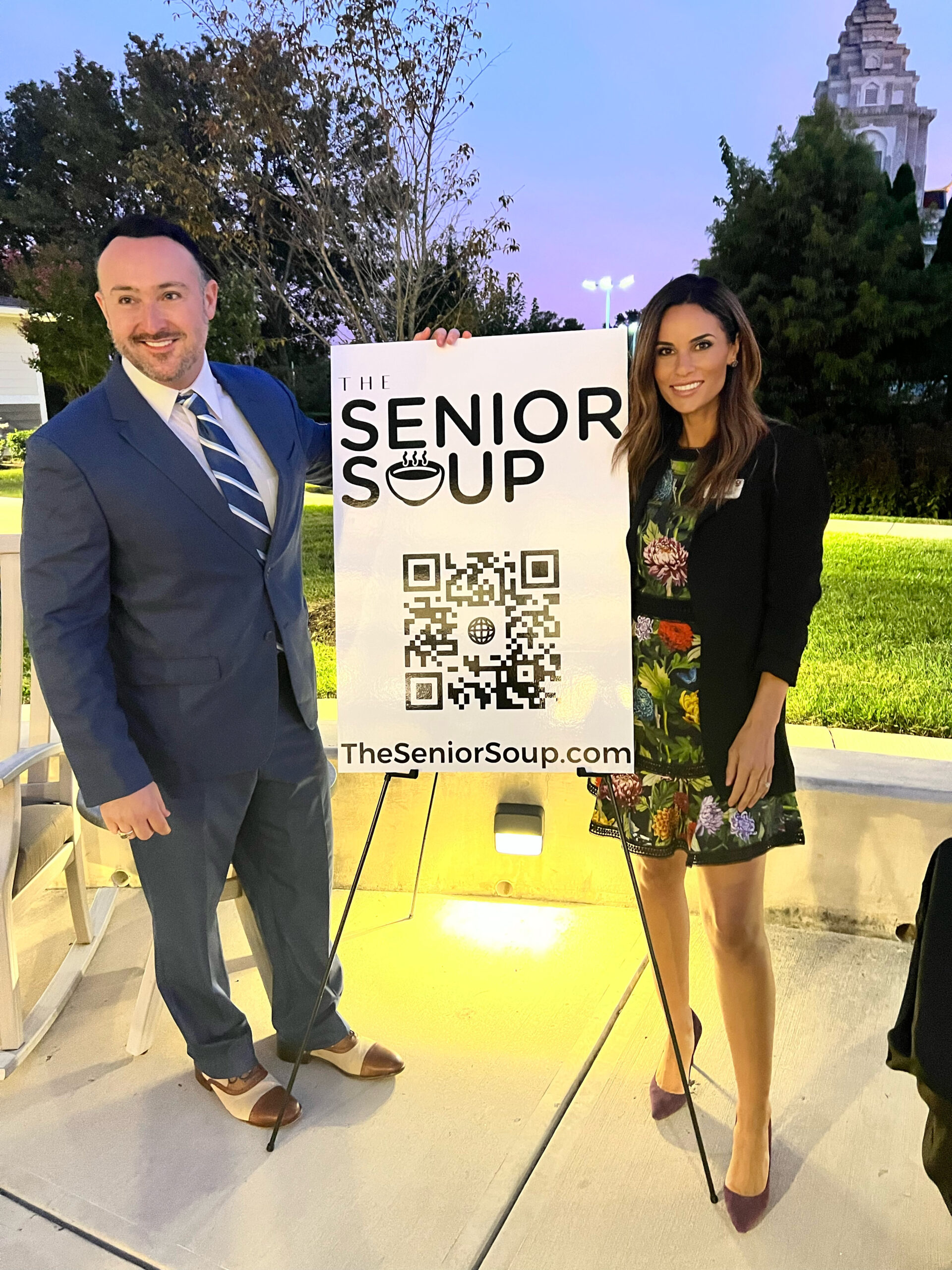We had the honor of hosting Andrea Bendig, a renowned dementia consultant and founder of Wellness Strategies Group, on The Senior Soup Podcast.
Our conversation was rich with insights and practical advice for families and caregivers dealing with dementia.
Here’s a detailed recap optimized to provide you with the best understanding of what a dementia consultant can offer, including a comprehensive listing of Andrea’s services.
Understanding the Role of a Maryland Dementia Consultant
As a dementia consultant, Andrea Bendig has over 30 years of experience in nursing, focusing on senior and dementia care.
As a certified dementia practitioner, Andrea’s expertise is a bridge in Maryland’s healthcare system, particularly for older adults requiring specialized dementia care.
The Scope of a Dementia Consultant’s Work
A Maryland dementia consultant like Andrea Bendig is pivotal in navigating the complexities of dementia care for older adults and their families.
From conducting comprehensive nursing assessments to developing personalized care plans, Andrea’s work is instrumental in enhancing the quality of life for those with dementia and helping families make critical decisions.
Maryland Dementia Services Offered by Andrea Bendig
In-home Dementia Care Consultations
- Comprehensive nursing assessments in the home setting;
- Development of personalized care plans based on individual needs.
Aging Care Management
Andrea guides Maryland families through the full continuum of care.
She supports older adults by helping them age in place safely, and she creates connections to meaningful aspects of clients’ lives.
Moreover, she creates comprehensive aging care strategies for older adults and their families.
Healthcare Navigation and Advocacy
She can act as a liaison between her clients, families, and the healthcare system, offering families objective advice by helping them navigate their loved one’s healthcare options.
Medication Management
Andrea helps her clients with their medications, ensuring they take them correctly and know why they need them.
Mental Health Support
Additionally, Andrea assists her clients in addressing their mental health concerns.
She provides guidance and support in managing these conditions.
Andrea’s goal is to help her clients improve their overall well-being, empowering them to develop effective strategies for coping with their mental health challenges.
And she strives to positively impact her clients’ lives through her expertise and compassion.
Rehabilitation and Recovery Coordination
Andrea actively checks on her clients in hospitals or skilled nursing facilities
And she works with case management and healthcare teams to her clients quickly recover when they return home.
Andrea Bendig is a Healthcare Advocate
Andrea serves as a healthcare agent for clients without family support, guiding them in legal and healthcare planning to ensure their wishes are met.
Nursing Coaching
Andrea offers a 12-week nursing training program, based on her 30 years of experience, helping guide fellow nurses to excellence and a better work-life balance.
Real-life scenarios Addressed by a Maryland Dementia Consultant
Scenario 1: Long-Distance Caregiving
Some Maryland families live far away from their aging relativesdiscussed about this specific scenario on the podcast, using Raquel’s grandmother, who lives in Florida, as an example.
Andrea told us that she often visits older adults inside their homes, accesses their health, and ensures they follow their doctors’ advice, including correctly taking their medication.
Scenario 2: Choosing the Right Living Environment
Ryan talked about his grandmother’s struggles with dementia and his family’s difficult decision to place them in memory care.
Andrea’s role as a dementia consultant involves assessing older adults’ home environments and capabilities while guiding Maryland families in making tough decisions about their loved one’s care.
Scenario 3: Rehabilitation and Recovery
We talked about how families often have trouble getting clear information about relatives in rehab.”
Andrea will visit skilled nursing facilities, coordinate with healthcare professionals, and provide families with clear and frequent updates.
Hiring a Maryland Dementia Consultant
Andrea’s expertise, compassion, and dedication make her an invaluable asset to families navigating the challenges of dementia care.
Our podcast with her was beneficial, showing how essential dementia consultants are in caring for older adults.
Andrea is a skilled, caring, and committed Maryland healthcare practitioner.
For more information or to contact Andrea, please visit her website at WellnessStrategiesGroup.com.
Our goal for seniors and their families is to reach out to Andrea and learn how she can help them.
Raquel and Ryan want to be a top Maryland source for families needing help with dementia care.


